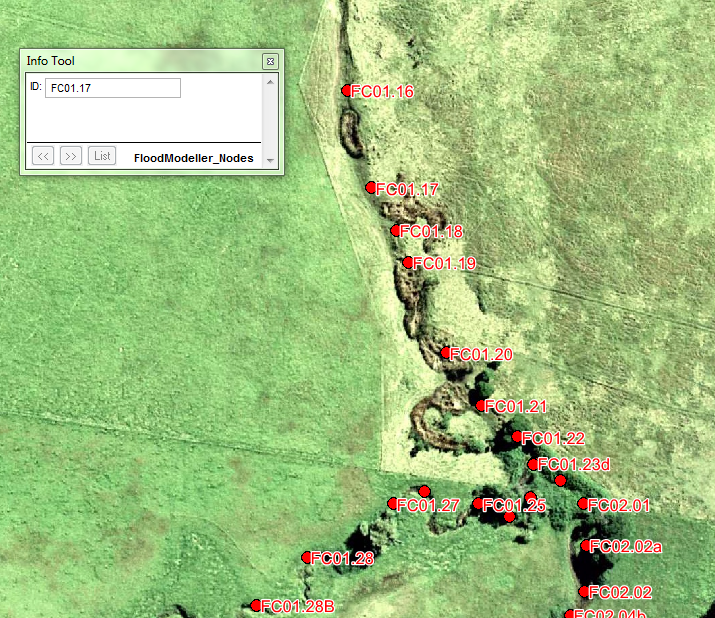Difference between revisions of "FM Tute M01 MI x1D Nodes"
Jump to navigation
Jump to search
(→Method) |
(→Method) |
||
| Line 5: | Line 5: | ||
=Method= | =Method= | ||
| − | <li> Open the FloodModeller_Nodes. | + | <li> Open the FloodModeller_Nodes.TAB layer from <b>Module_Data\Module_01\mi folder</b>.</li> |
| − | <li> Save as | + | <li> Save as 1d_x1d_FMT_M01_nodes_001.TAB within the TUFLOW\model\mi folder. </li> |
| − | <li> Open the GIS layer | + | <li> Open the GIS layer 1d_x1d_FMT_M01_nodes_001.TAB within MapInfo.</li> |
<li> Interrogate one of the digitised points and inspect the attributes. Note that each point has a unique name which correlates to a RIVER, INTERPOLATE or REPLICATE unit within the Flood Modeller model. At junctions, both the upstream and downstream nodes must be digitised within this layer.</li> | <li> Interrogate one of the digitised points and inspect the attributes. Note that each point has a unique name which correlates to a RIVER, INTERPOLATE or REPLICATE unit within the Flood Modeller model. At junctions, both the upstream and downstream nodes must be digitised within this layer.</li> | ||
| Line 14: | Line 14: | ||
| − | <li> Save the file. | + | <li> Save and export the file to MID/MIF format. |
<div style="background-color: #D6E9E0; width: 50%; margin: 20px; auto; text-align: center; | <div style="background-color: #D6E9E0; width: 50%; margin: 20px; auto; text-align: center; | ||
Revision as of 01:38, 11 November 2016
- Open the FloodModeller_Nodes.TAB layer from Module_Data\Module_01\mi folder.
- Save as 1d_x1d_FMT_M01_nodes_001.TAB within the TUFLOW\model\mi folder.
- Open the GIS layer 1d_x1d_FMT_M01_nodes_001.TAB within MapInfo.
- Interrogate one of the digitised points and inspect the attributes. Note that each point has a unique name which correlates to a RIVER, INTERPOLATE or REPLICATE unit within the Flood Modeller model. At junctions, both the upstream and downstream nodes must be digitised within this layer.
- Save and export the file to MID/MIF format.
Key Tip!
The node IDs are case-sensitive as this is a requirement of Flood Modeller.
You have now created the links to Flood Modeller for reading into TUFLOW. Return to the Flood Modeller Tutorial Model.
Introduction
We will now create TUFLOW GIS layers to reference the nodes within the Flood Modeller model.
These node layers are the primary way that TUFLOW references the Flood Modeller sections.
Method
